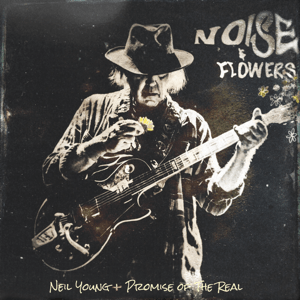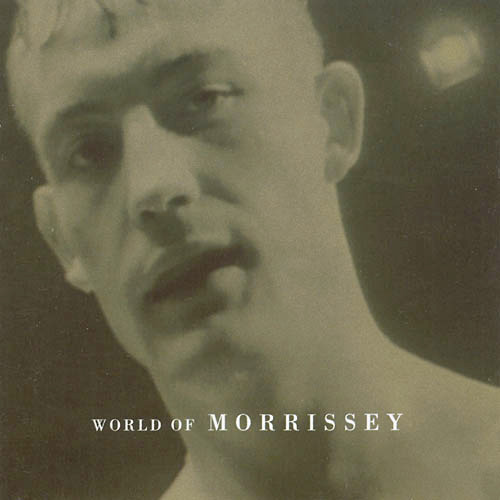The one word that is common to just about every review of this album is “mess”. And it’s true: the fourth album by the Clash is a sloppy, sprawling mess. Without a Guy Stevens to throw chairs at them, they produced themselves, and instead threw just about everything they could find into the mix, from recordings in London, New York, and Jamaica. Having made friends with various of Ian Dury’s Blockheads, they were invited to contribute. Joe Strummer’s old busking partner Tymon Dogg brought his violin, and Mick Jones was dating Ellen Foley from
“Paradise By The Dashboard Light”, so she was around too. (The band would go on to back her up on her next album.) The year before they’d convinced Epic to release
London Calling as two records crammed into one sleeve, so they did the same with this album, and then some: six sides full of sound, if not necessarily music.
London Calling ran just over an hour;
Sandinista! is over twice that length.
During that year reggae and dub had made big impressions on the band, and while disco may have sucked, rap was appealing. That makes “The Magnificent Seven” so startling, with beats straight from Grandmaster Flash and a bubbling Chic bass line. (Norman Watt-Roy of the Blockheads is responsible for this and some of the funkier bass lines throughout the album; Paul Simonon does play, but not as loudly nor as proficiently.) Some dreamy keyboards and a Motown beat bring in “Hitsville U.K.”, which barely sounds like a Clash song since Ellen Foley’s vocals are mixed louder than Mick’s. Joe turns the blues song “Junco Partner” inside out to a wacky reggae backing, then Topper Headon takes his first lead vocal on “Ivan Meets G.I. Joe”, an upbeat track dominated by what sounds like the Space Invaders and Pac-Man arcade games at top volume. “The Leader” is the shortest song in the entire set, with some good rockabilly that actually sounds like the band for a change. It’s over before you know it, and is nudged aside by “Something About England”, which sounds like half of a big production, as if they loaded up the multitracks and forgot to raise the faders on the rhythm section for the first minute or so. There’s a strong lyric in there, but you can’t hear it.
Side two starts with another track unlike anything they’d done before. “Rebel Waltz” sports an intricately picked guitar line before a harpsichord(!) and other keyboards fill in under it—another strong tune distracted by the mix. Whatever gravitas it’s supposed to impart isn’t helped by “Look Here”, a Mose Allison tune mostly played straight but, again, smothered with atonal touches. With “The Crooked Beat”, Paul gets to follow up the threat laid down by “The Guns Of Brixton” on an even longer song layered in percussion devoid of meter or tempo. (In foreshadowing, the latter half of the track is basically a dub version. Stay tuned; we’ll explain.) Guitars return on “Somebody Got Murdered”, a starkly matter-of-fact statement heavily laden with futility. “One More Time” is a decent fusion of rock and reggae, but you have to juggle Joe’s fake accent with the highly nasal toasting from Mikey Dread. We fade to silence, and then we’re treated to “One More Dub”, an experiment that works.
After an aircheck of Joe calling into progressive New York radio station WBAI, “Lightning Strikes (Not Once But Twice)” is something of a retread of “The Magnificent Seven” but not as slick. It ends abruptly for “Up In Heaven (Not Only Here)”, which sounds like the Clash again, to take over. There’s an extended ending where the song begins to fade under some feedback, then comes back in before fading for good. “Corner Soul” is another one lost to a busy mix and even more Ellen Foley, but mixed lower. A tape of a street huckster opens and closes the otherwise steel drum-fueled “Let’s Go Crazy”, but the more obviously dub-influenced “If Music Could Talk” is an improvement. Then things go completely off the rails for “The Sound Of Sinners”, a completely unexpected gospel rave-up with Topper adding a nice harmony. There’s even a benediction of sorts at the end.
With that setup, side four almost sounds like where the album (or another one) should start, as the guitar siren of “Police On My Back” makes you think the Clash you’ve been used to have returned after all, but surprise! Eddy Grant wrote this song, before he rocked on down to Electric Avenue. “Midnight Log” is another brief one in the vein of “The Leader”, while “The Equaliser” is a mostly dub track of double length that sounds like it’s missing the main context. “The Call Up” was the danceable first single, an anti-draft protest that still takes up a lot of space. Its sentiment is continued in “Washington Bullets”, which gives the album its title and skewers every country that subscribes to the military industrial complex. In a poor mixing choice, the organ is absolutely pinned at the end of the track. “Broadway” could be Strummer’s Sinatra moment, or at least a prediction of the Replacements’ “Nightclub Jitters”, but the mix is too crazy, and just to make things interesting, the last minute is given over to Mickey Gallagher’s daughter’s rendition of “The Guns Of Brixton”. By now anyone would be justified in calling this the band’s White Album.
The Clash-ness continues at the top of side five on “Lose This Skin”, except that it’s written and caterwauled by Tymon Dogg, whose sawing violin predicts the Waterboys. Some clever helicopter effects via guitar open the extremely melodic “Charlie Don’t Surf”. It’s one of the better tracks here, but by now it’s clear they were struggling to fill six sides, as “Mensforth Hill” runs “Something About England” backwards, with posed dialogue on top. (Again, White Album.) After that “Junkie Slip” sounds like another one that should’ve been a B-side, and while “Kingston Advice” has promise, it’s literally torpedoed throughout by video game noises. Similar sound effects are used like percussion on “Street Parade”, which deserves better.
Side six is either loved or hated, considering that most of it recycles what’s come before. But first we have “Version City”, which opens with the sound of a sample from Mattel’s version of the Mellotron winding up under an unctuous announcer, a bad omen for how the rest of an otherwise decent song is treated. “Living In Fame” is a dub version of “If Music Could Talk” sung by Mikey Dread, but then the sample and announcer come in again and “Silicon On Sapphire” layers a conversation between computers (this is not a joke) over the track for “Washington Bullets”. “Version Pardner” takes us all the way back to “Junco Partner” on side one, and isn’t as jarring, but it’s just as random. Mickey Gallagher’s sons get into the act, singing “Career Opportunities” from the first album over a sprightly harpsichord-led arrangement. And where else can we go with a mellow instrumental of “Police & Thieves” (or maybe “If Music Could Talk”?) called “Shepherds Delight”, possibly due the bleating interjections, that suddenly switches to a slowed-down tape of a car driving off?
There’s nothing pointedly awful on Sandinista!—surely “Mensforth Hill” would have its supporters. Even the dub versions on side six would have made decent B-sides, and then people would be clamoring for them. Still, trying to shave the album to a stellar single disc is near-impossible. Call it the results of a busy year, and take time to see what rises to the top. If anything, the dub experiments heard on B-sides and Black Market Clash will not only make more sense, but improve in stature.
The Clash Sandinista! (1980)—3





